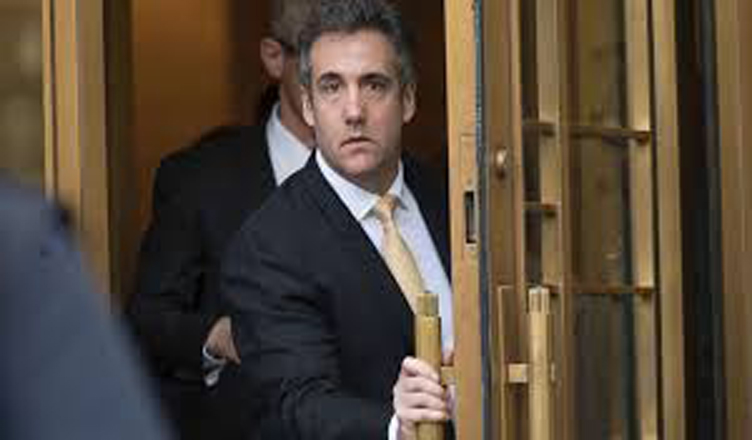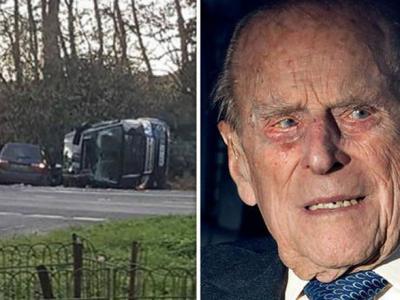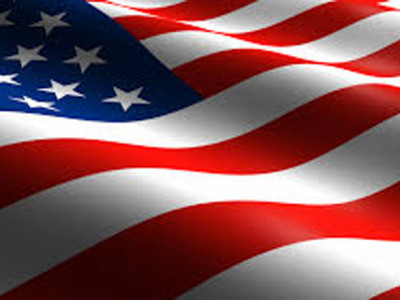(COLOMBO, LANKAPUVATH) –President Donald Trump’s public pronouncements, in the twenty-four hours since his former personal lawyer Michael Cohen pleaded guilty to eight federal charges, and his former campaign chairman Paul Manafort was convicted of another eight, have exuded an air of impunity—and even insouciance. On Tuesday night, at a rally in West Virginia, Trump barely mentioned his legal troubles, at least not directly, and spoke of the proceedings as if, somehow, they vindicated him: “Where is the collusion? You know they’re still looking for collusion. Where is the collusion? Find some collusion. We want to find the collusion!” (Odds are, he doesn’t really want to.) By the next morning, he had moved on to praise for Manafort (“a brave man!”) and sarcasm about Cohen: “If anyone is looking for a good lawyer, I would strongly suggest that you don’t retain the services of Michael Cohen!”
It was quite a comment to make about a potential witness against him—and about his own past lawyer-picking choices. It is also a revealing one, in terms of what Trump seems to see as his best defense: he is surrounded by liars, losers, and thieves, and liars lie. Trump’s supporters might say that he acts as though he had no consciousness of guilt; it would be more accurate to say that he acts as if he were very, very conscious of how compromised many of the people around him are—in many cases because of actions they took while working for him.
Cohen, for example, pleaded guilty to two campaign-finance charges. One involved a payment of a hundred and thirty thousand dollars to Stephanie Clifford, better known as Stormy Daniels, several weeks before the 2016 election. In the terms of the plea, this was defined as a campaign contribution from Cohen to the Trump campaign, one that well exceeded the legal limit for donations made by individuals. Cohen said in court that he made the payment at the direction of the “candidate,” and that the goal was to keep Clifford from damaging the candidate’s electoral prospects by telling the public about a sexual encounter she said she’d had with him. Trump has denied that he knew about the payment beforehand. (On Fox News Wednesday night, Trump said that he only learned of it “later on” and that campaign money wasn’t involved.) Cohen also previously denied that Trump knew, claiming, at one point, that this was just a personal dealing that he had with Clifford—a statement he now says was false. That never made sense; the hush agreement that Clifford signed was written as though Trump were involved, and the President is now a party to litigation meant to enforce it. The Trump Organization also ultimately reimbursed Cohen. Rudy Giuliani, another Trump lawyer, has said that this is proof that the money wasn’t a campaign contribution. The Cohen prosecutors, pointing to invoices for the reimbursement that they say were falsified, portray the payments, which Cohen received after the election, as essentially a cover-up.
Then again, Trump never did sign the agreement, leaving open a tiny crack through which he might argue that Cohen was lying to Clifford about who was paying her off, and is lying to prosecutors now, and, just generally, lies. (Sarah Huckabee Sanders, the White House press secretary, said on Wednesday that calling Trump a liar was “a ridiculous accusation.” He had not, she said, done anything wrong.)
A judge in the Clifford case had stayed the proceedings because it seemed that Cohen was about to be indicted; now that Cohen has pleaded guilty, Clifford’s lawyer, Michael Avenatti, will want to get them started again. One of his first moves will be to try to depose Trump—possibly a more dangerous perjury trap than anything Robert Mueller could come up with.
The other campaign-finance count to which Cohen pleaded guilty involves a payment that a media company made to another woman for the rights to her story of an alleged affair with Trump, which it then suppressed; the parties are unnamed in the court papers, but they are clearly American Media Inc. and Karen McDougal, a former Playboy model. The prosecutors seem to have a paper trail showing Cohen’s coördination with American Media, and Cohen’s lawyers have produced a tape demonstrating that Trump had at least approved the idea of Cohen negotiating to buy the rights to the story from A.M.I.—a secondary market in silence—though that never happened, for reasons that aren’t clear. Cohen, in his plea agreement, is accepting that A.M.I.’s purchase of the rights from McDougal was a contribution to the Trump campaign. That would be illegal, because corporations can’t give money to candidates. Because the money apparently never passed through the Trump campaign’s accounts, however—A.M.I. paid McDougal—Trump is likely to argue that it wasn’t a contribution at all but part of a miasma of money and favors traded by people in ways that his terrible lawyers told him not to worry about.
And this is one of the more depressing aspects of Trump and Trumpism: his reliance, when protesting his innocence, on the assumption that everyone knows that everyone is crooked, especially everyone in politics. In describing the meeting that his son Donald, Jr., took with purported Russian dirt peddlers, he said that anyone in politics would have taken the same meeting. And what about the money that the Clinton campaign paid to a law firm that paid a research firm that paid a former British spy to put together a dossier about Trump’s potential connections with Russia—a set of transactions that the President refers to as the “real” collusion? On Wednesday, Trump also tweeted, “Michael Cohen plead guilty to two counts of campaign finance violations that are not a crime”—they are—“President Obama had a big campaign finance violation and it was easily settled!” The case that the Obama campaign settled is fairly distinct from this one, though: it involved excess personal contributions and bad or late paperwork, but no allegations of hush money. Still, there is too much money in politics, and it’s true that a lot of campaign-finance violations are dealt with lightly, far too late, or not at all. At some point, though, that has to stop being a defense. Maybe, with Cohen’s plea, this will be the moment in time that it does.
Or maybe not. Whether a President can be indicted while in office is an open question, but a President can certainly be impeached. For the Cohen charges to become the basis of an impeachment case, though, a lot of members of Congress are going to have to stand up and rail against excess campaign contributions and corporate favors that might be defined as contributions. Will they be paralyzed by anxiety about how their own records might hold up under scrutiny? Are they willing to take the risk and draw a line?




